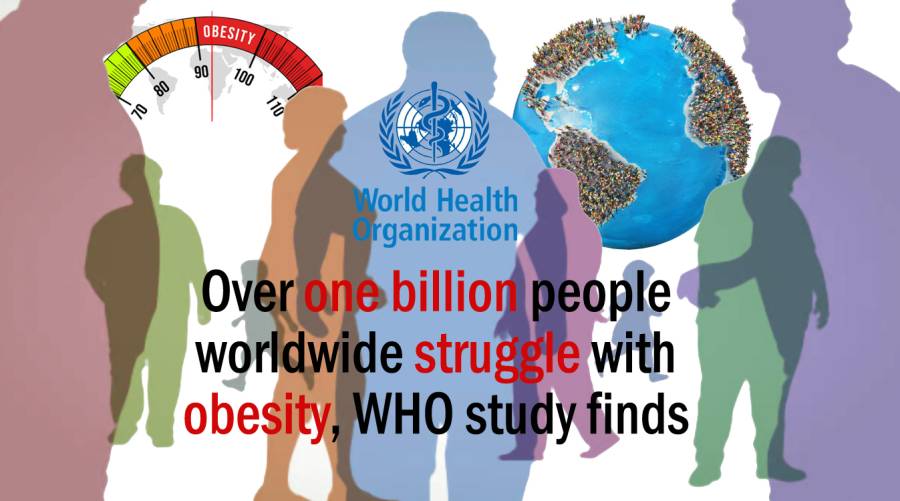Over one billion people worldwide struggle with obesity, WHO study finds

ISLAMABAD: More than a billion people worldwide are grappling with obesity, according to a report by the World Health Organization (WHO) and an international consortium of researchers. This revelation marks a significant shift as obesity surpasses underweight as the predominant health concern in numerous nations, including low and middle-income countries previously plagued by undernourishment.
Majid Ezzati, senior author of the paper published in The Lancet, highlights the gravity of the situation, noting the staggering prevalence of obesity globally. Drawing from data collected across more than 190 countries from over 220 million individuals, the findings shed light on a concerning trend. While affluent nations witness a plateau in obesity rates, its incidence is accelerating in other regions, exacerbating the global health crisis.
Francesco Branca of the WHO emphasizes the universal nature of the obesity epidemic, dispelling the notion that it solely affects affluent societies. The report reveals a distressing surge in obesity rates among children and adolescents, echoing trends observed in adults since before 1990. Concurrently, millions still endure food insecurity, perpetuating the dual challenge of malnutrition.
The ramifications of obesity are dire, with individuals facing heightened risks of premature death and debilitating health conditions such as diabetes and cardiovascular diseases. Compounding this crisis is the emergence of a double burden of malnutrition, particularly acute in low and middle-income nations across regions like the Caribbean and the Middle East.
Efforts to combat obesity necessitate multifaceted strategies, including taxation on high-sugar products and promotion of nutritious school meals, as advocated by WHO Director-General Dr. Tedros Adhanom Ghebreyesus. However, addressing this complex issue requires collaboration with the private sector, which must be held accountable for the health impacts of their products.
While promising pharmaceutical interventions exist, such as Novo Nordisk’s Wegovy and Eli Lilly’s Mounjaro and Zepbound, their accessibility and cost pose challenges, potentially widening health disparities. Despite the study's insights, limitations persist, including the absence of post-COVID-19 data and reliance on body mass index (BMI) as an imperfect metric for obesity assessment, as acknowledged by the researchers.
Trending
Popular
Boost your muscle gains with these protein-packed fruits
-
Managing stress no longer a luxury, ...
09:00 PM, 21 Dec, 2024 -
After evening large meals may fuel to ...
06:00 PM, 21 Dec, 2024 -
‘Sleep Apnea is a silent brain ...
03:10 PM, 21 Dec, 2024 -
WHO study reveals key elements of a ...
09:00 AM, 20 Dec, 2024




